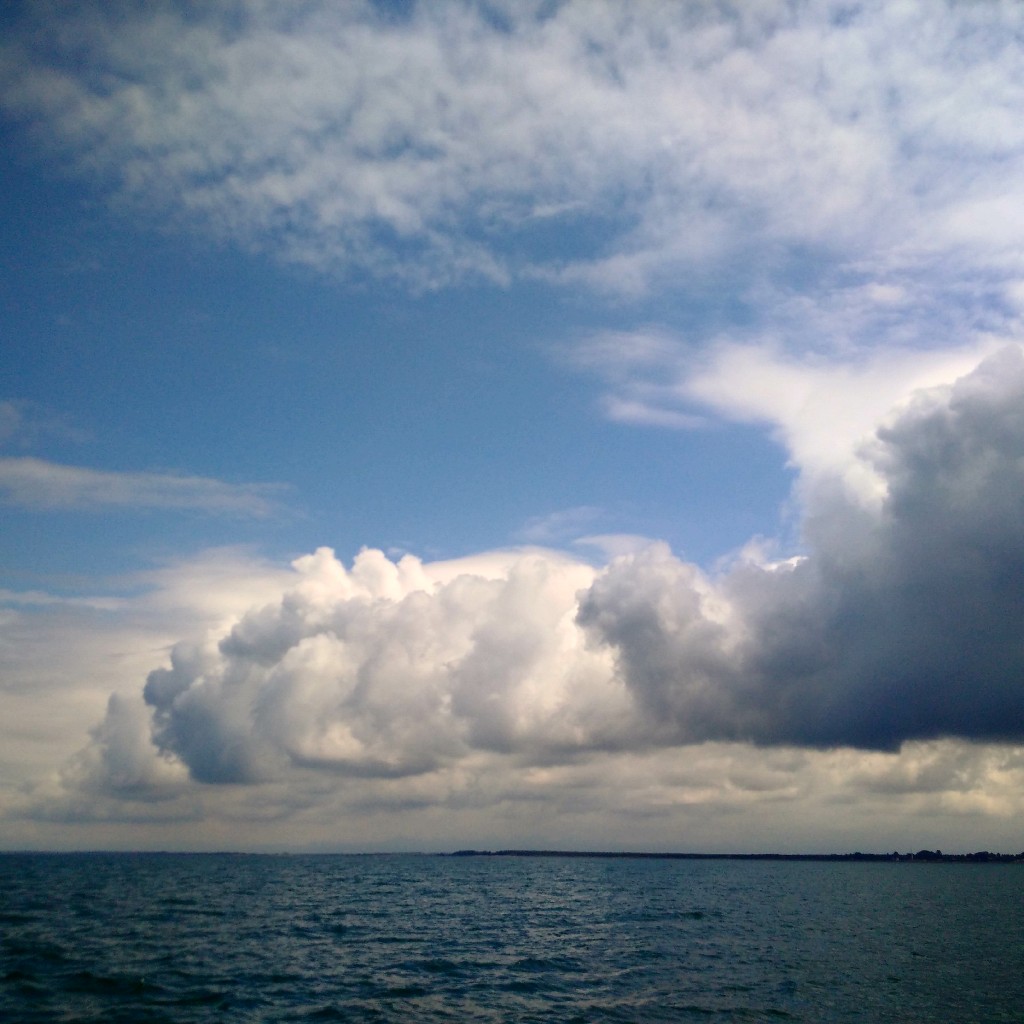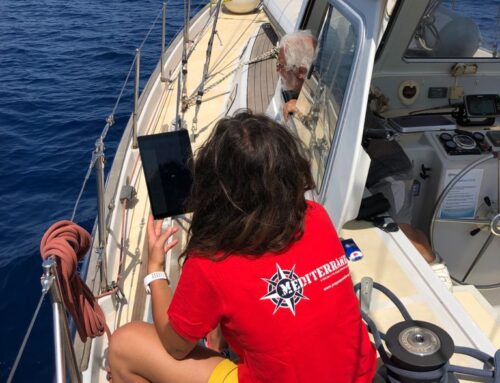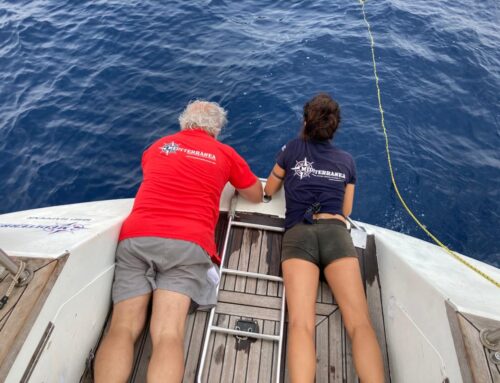
(by Simone Perotti)
Aboard Mediterranea we do this way. The more experts make room for those who need to gain experience. During the first year sailing our boat required the humility of waiting, working care. Whoever was on board, experienced or not, washed, put fenders on and off, contributed to the works, listened to the courses and the interpretations of wind and sea, without actually making any of his own. Whoever was on board, during our first year, slave or king, had to bow his head to Mediterranea, get to know it, respect it and take care of it, learning life on board. The sea does not spare, and does not award either the impatient, the ambitious, those who are not humble. To command a boat you shall love it, and to go to sea you shall never stop being afraid of it.
Aboard Mediterranea we do this way. During this second year the Rais take it in turns to be the “second-in-command”, the actual one. The Second-in-command has an indefinite and hard job, made of service, intuition, foresight, training. He is the favourite advisor of the Commander, he could take his place, he has the knowledge and the experience because he can read the day as he gets up in the morning, sipping his coffee he can understand whether the morning forecasts joy or suffering, whether he shall sail on, quickly, or wait, even long. The Second-in-command feels the boat, feels its bowels, taps with his fingers on her back/hull and auscultates it. The Second is the strong point of the weak chain of command, that is made of a meaningful nothing, of clues, and understands crew and commander, looks at the bow and stern of the boat, of the sea, of the journey. I’ve met very few real Commander in my life, even fewer Second-in command, and on their boats you would sail with invisible order, with sovereign and sober dignity. That shall learn Mediterranea Rais over this second year, and shall learn it for themselves.
Aboard Mediterranea we do this way. The Commander-in-chief lets the Second-in-command manoeuvre; offshore, under sail, at port, at mooring; in a passage, a fjord, an isthmus, a cape, discusses with him, decides with him, explains, tells. With patience, with real passion for seamanship, he teaches. The Commander still needs to learn from the sea, and he knows what it’s true. But whatever he knows he has to tell; yet what he really knows, not what he assumes or what he hopes he knows. In every gesture, in a knot, in an arc of a course, at sea there is an attempt for perfection, which is always only an interpretation of the inexplicable. Too many forces converge for a single man, a single crew to rule them. Therefore, the Commander teaches that sailing is an intellectual activity, more than a physical one, and its ingredients are foresight, training, intuition, simulation of something that is not yet, so that when it occurs it has already been experienced, at least in imagination that is master of experience.
Thus, the Rais aboard Mediterranea gather hundreds, thousands miles. Thus, they learn that the knowledge of the sea is hard without humbleness, and timeless. Thus, they learn that here, aboard Mediterranea, we try to offer something rare: the opportunity to actually experience the sea. Losing or seizing it is up to the individual, rather than the seaman. Not offering it would be a serious problem of command.
Aboard Mediterranea we do this way.





Leave A Comment